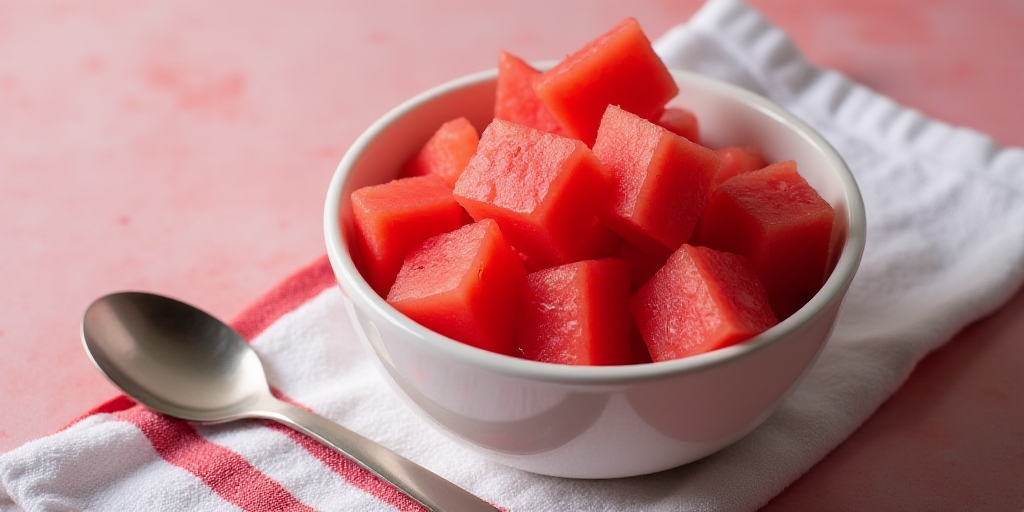The Rise of Mono-Food Diets
As summer approaches, various “miracle diets” emerge everywhere, promising to help shed those extra pounds and achieve a perfect body. Among these are mono-food diets, restrictive regimes that involve consuming only one type of food or a very limited group of foods for a certain period. The goal is to lose weight quickly or “detox” the body.
Temporary Weight Loss
Due to their drastic calorie restriction, mono-food diets lead to short-term weight loss. However, consuming such low calorie intake causes a decrease in blood glucose levels, triggering mechanisms to maintain energy supply.
Initially, the body uses hepatic glycogen, the primary glucose reserve that maintains adequate blood sugar levels, especially between meals or during fasting. Once this reserve is exhausted, the body starts mobilizing muscle mass to obtain amino acids for glucose synthesis through other metabolic routes. This process, sustained over time, can result in significant muscle mass loss and other metabolic alterations.
Therefore, a substantial part of the weight loss is due to water and muscle mass reduction rather than fat loss, making these results temporary. Upon completing such diets, individuals often regain the lost weight quickly when resuming their regular diet, known as the “bounce-back” effect.
Are there any real benefits?
Beyond the mentioned initial weight loss, scientific evidence supporting genuine and lasting benefits from mono-food diets is virtually nonexistent. Some individuals report feeling “lighter” or improved digestion, but these effects may result more from eliminating processed foods than the diet itself.
Additionally, the “placebo effect” can occur: believing they’re following a detox diet and “cleaning” their bodies, people feel better, even without proven physiological changes.
Are they harmful?
Yes, mono-food diets can become dangerous, especially if prolonged. Their primary risk is essential nutrient deficiency. By consuming only one type of food, we miss out on proteins, healthy fats, vitamins, and minerals necessary for proper body function.
Moreover, they can cause digestive issues, metabolic disorders, bone and muscle problems, hormonal alterations, and electrolyte imbalances, particularly in individuals with pre-existing vulnerable health conditions.
Another significant risk is fostering an unhealthy relationship with food, marked by restriction and guilt, which in extreme cases can trigger eating disorders like ortorexia or anorexia nerviosa.
Why are they still popular?
Despite the mentioned risks, mono-food diets remain successful, especially on social media and in traditional media. Their appeal lies in simplicity and the promise of quick results with minimal effort. Many of these diets are promoted by celebrities or influencers, lending them a false sense of credibility.
It’s crucial to note that while mono-food diets can lead to rapid, temporary weight loss, they are not effective in the long term and can be harmful if followed for extended periods. They offer no genuine health benefits and may cause significant nutritional deficiencies and health issues.
For these reasons, mono-food diets are not recommended and should not be promoted as appropriate weight control or health improvement methods.
Key Questions and Answers
- Q: What are mono-food diets? A: Mono-food diets are restrictive regimes that involve consuming only one type of food or a very limited group of foods for a certain period, with the goal of losing weight quickly or “detoxing” the body.
- Q: What are the effects of mono-food diets on weight loss? A: These diets lead to short-term weight loss, primarily due to water and muscle mass reduction rather than fat loss. The weight often returns quickly once normal eating habits are resumed.
- Q: Are there any real benefits to mono-food diets? A: Scientific evidence supporting genuine and lasting benefits from mono-food diets is virtually nonexistent. Some individuals report feeling “lighter” or improved digestion, but these effects may result from eliminating processed foods rather than the diet itself.
- Q: Are mono-food diets harmful? A: Yes, prolonged mono-food diets can lead to essential nutrient deficiencies, digestive issues, metabolic disorders, bone and muscle problems, hormonal alterations, and electrolyte imbalances. They can also foster an unhealthy relationship with food.
- Q: Why are mono-food diets still popular? A: Despite their risks, these diets remain successful due to their simplicity and promise of quick results with minimal effort. They are often promoted by celebrities or influencers, contributing to their popularity.






